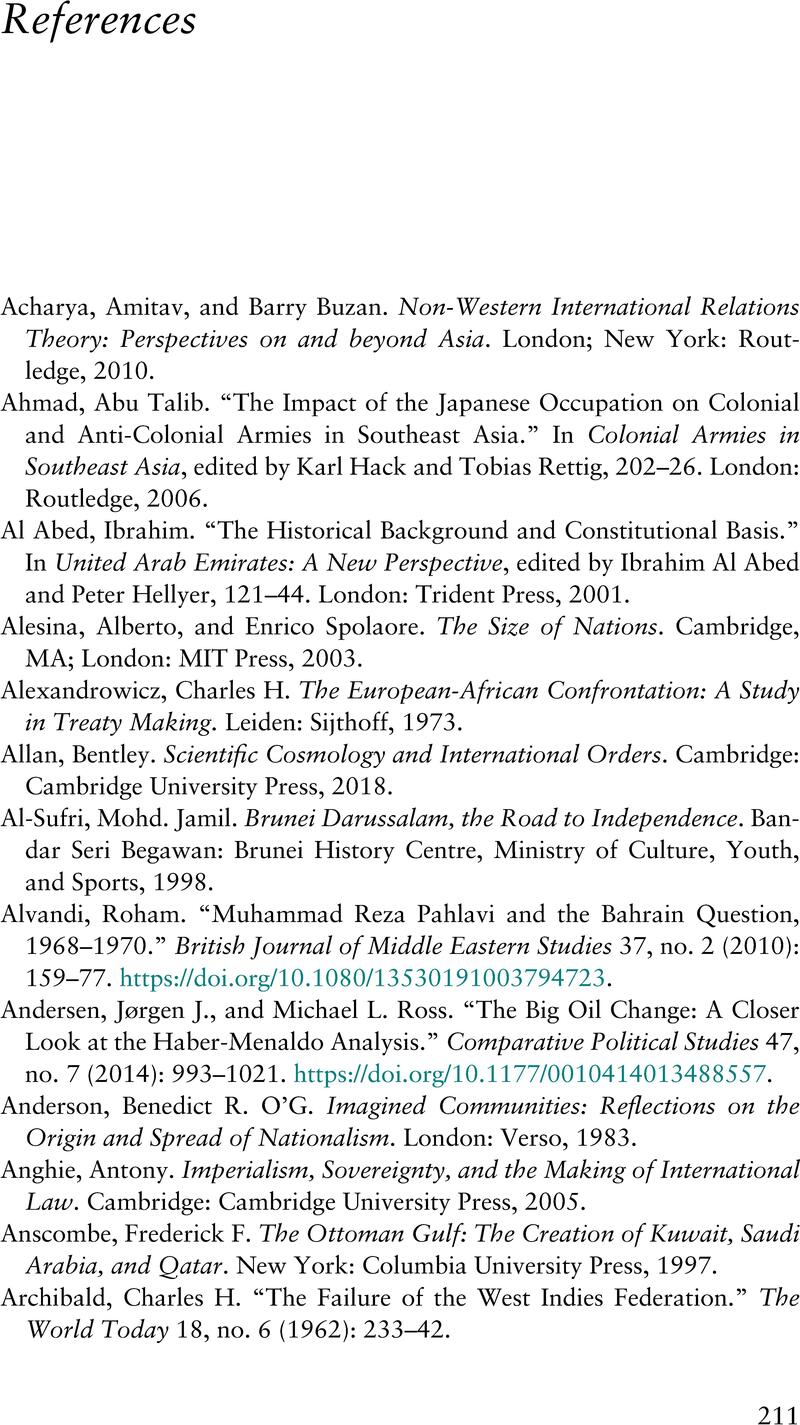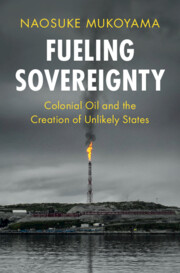Book contents
- Fueling Sovereignty
- LSE International Studies
- Fueling Sovereignty
- Copyright page
- Dedication
- Contents
- Figures
- Tables
- Acknowledgments
- 1 Introduction
- 2 Theory of Separate Independence
- 3 Colonial Oil and Decolonization in Borneo
- 4 Colonial Oil and Decolonization in the Lower Gulf
- 5 Separate Independence in Other Settings
- 6 Varying Historical Impacts of Resource Endowment
- 7 Conclusion
- References
- Index
- References
References
Published online by Cambridge University Press: 14 March 2024
- Fueling Sovereignty
- LSE International Studies
- Fueling Sovereignty
- Copyright page
- Dedication
- Contents
- Figures
- Tables
- Acknowledgments
- 1 Introduction
- 2 Theory of Separate Independence
- 3 Colonial Oil and Decolonization in Borneo
- 4 Colonial Oil and Decolonization in the Lower Gulf
- 5 Separate Independence in Other Settings
- 6 Varying Historical Impacts of Resource Endowment
- 7 Conclusion
- References
- Index
- References
Summary

- Type
- Chapter
- Information
- Fueling SovereigntyColonial Oil and the Creation of Unlikely States, pp. 211 - 227Publisher: Cambridge University PressPrint publication year: 2024

